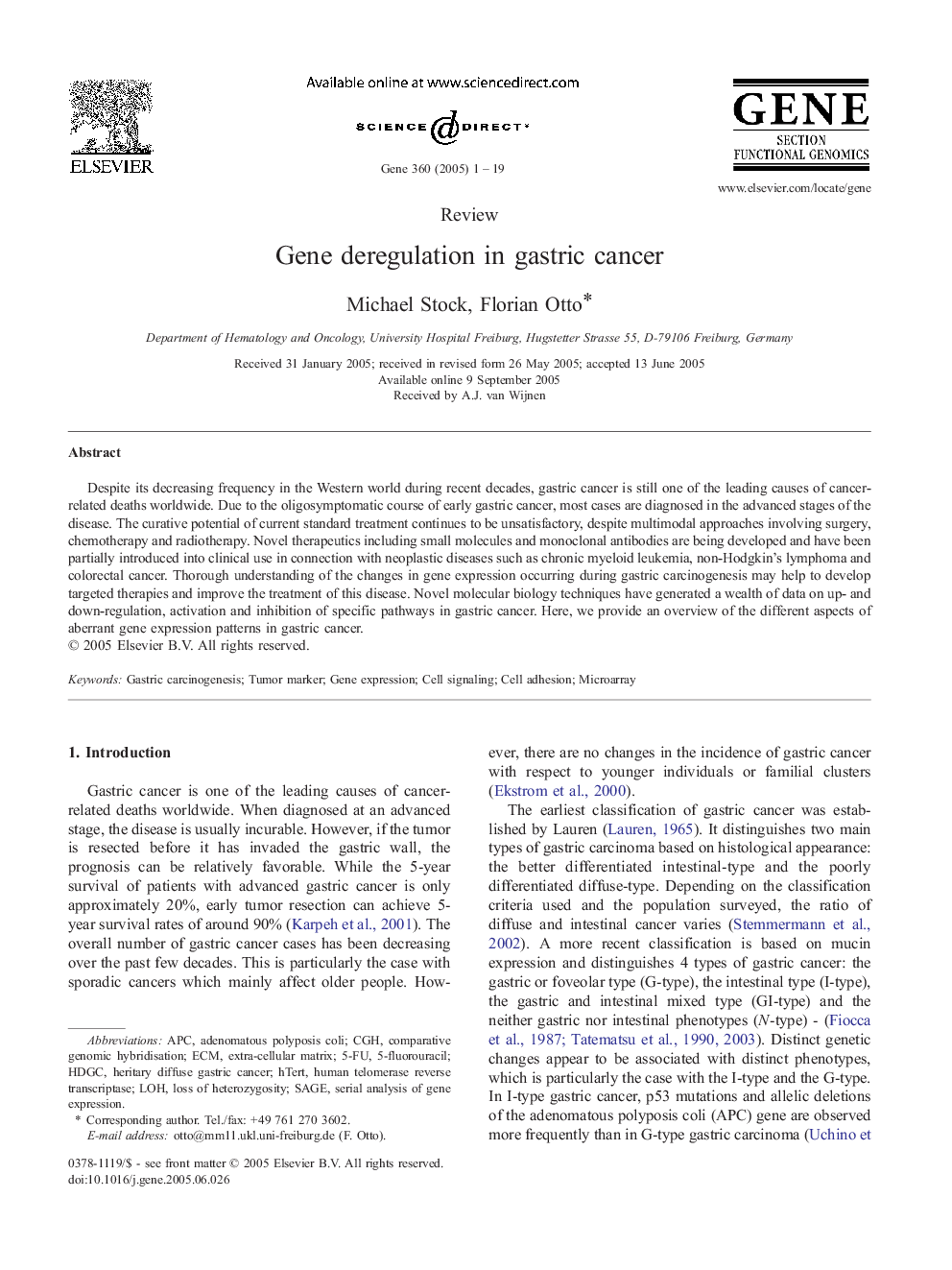| Article ID | Journal | Published Year | Pages | File Type |
|---|---|---|---|---|
| 9126916 | Gene | 2005 | 19 Pages |
Abstract
Despite its decreasing frequency in the Western world during recent decades, gastric cancer is still one of the leading causes of cancer-related deaths worldwide. Due to the oligosymptomatic course of early gastric cancer, most cases are diagnosed in the advanced stages of the disease. The curative potential of current standard treatment continues to be unsatisfactory, despite multimodal approaches involving surgery, chemotherapy and radiotherapy. Novel therapeutics including small molecules and monoclonal antibodies are being developed and have been partially introduced into clinical use in connection with neoplastic diseases such as chronic myeloid leukemia, non-Hodgkin's lymphoma and colorectal cancer. Thorough understanding of the changes in gene expression occurring during gastric carcinogenesis may help to develop targeted therapies and improve the treatment of this disease. Novel molecular biology techniques have generated a wealth of data on up- and down-regulation, activation and inhibition of specific pathways in gastric cancer. Here, we provide an overview of the different aspects of aberrant gene expression patterns in gastric cancer.
Keywords
HDGC5-FUCGHECMAPChTERTadenomatous polyposis coliloss of heterozygosityGene expressionSerial analysis of gene expressionComparative genomic hybridisationhuman telomerase reverse transcriptaseSAGEMicroarraygastric carcinogenesisCell signaling5-fluorouracilLOHextra-cellular matrixTumor markerCell adhesion
Related Topics
Life Sciences
Biochemistry, Genetics and Molecular Biology
Genetics
Authors
Michael Stock, Florian Otto,
